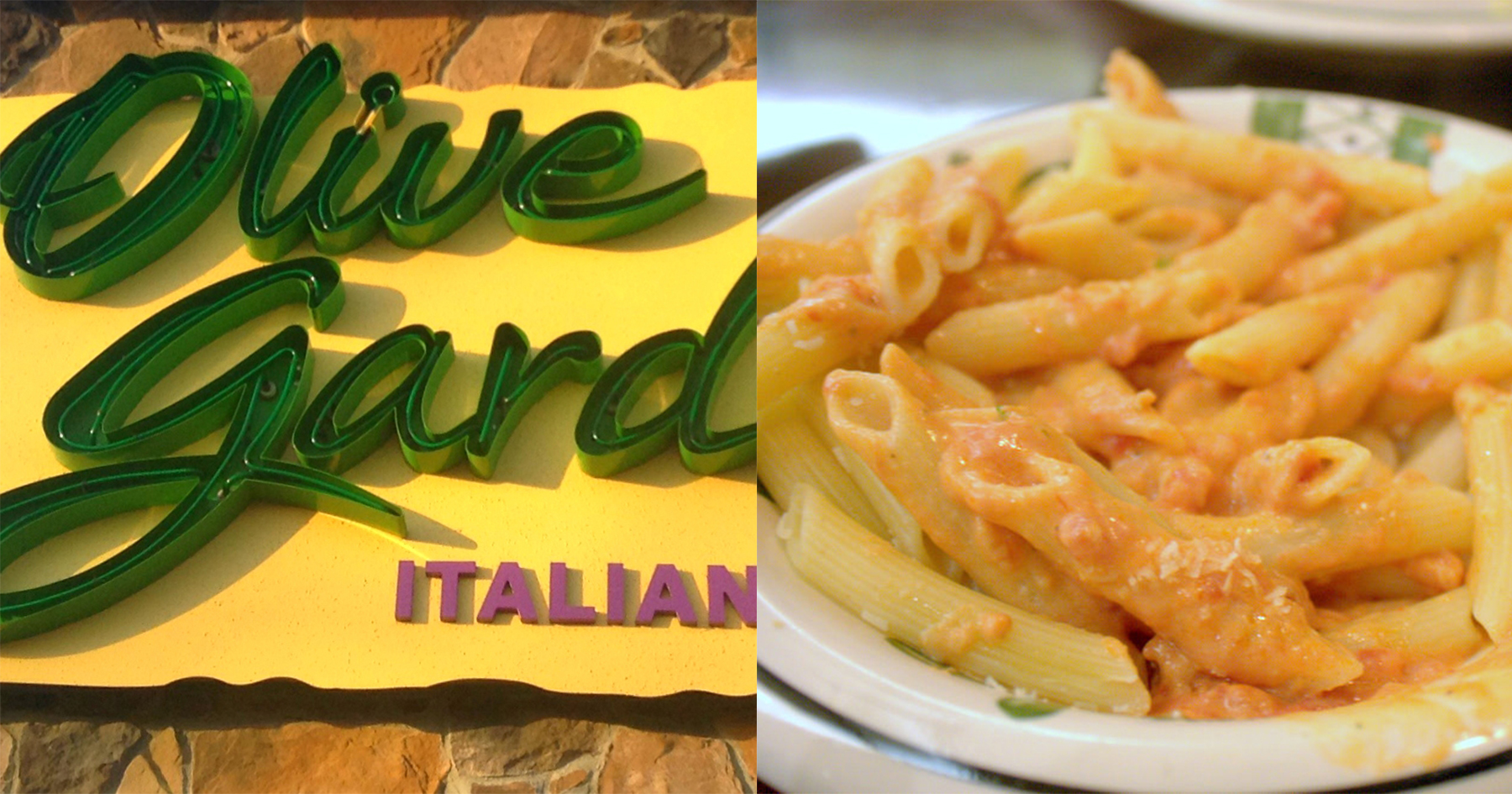Don't Fall for Olive Garden's New Gimmick
By:
Olive Garden, the nation's most popular full-service breadstick Italian restaurant chain, was in the news Thursday after selling out of all 2,000 promotional passes that will let customers endlessly gorge on pasta, breadsticks, salad, and Coke products for seven weeks straight. The Never Ending Pasta Passes reportedly sold out in less than one second, Business Insider reported.
But aside from the health risks of the seven-week-unlimited Olive Garden diet, the chain's gimmick, which last year caused the company's website to crash, is alarming for a perhaps more clandestine reason—how can the company afford to take such a hit to its profits?
 Flickr/Mike Mozart/Krista - flickr.com
Flickr/Mike Mozart/Krista - flickr.com
The chain sold one thousand $100 passes, and one thousand $300 "family" passes that allow up to three guests to pack in as much Olive Garden and soda as they want. For pass-holding customers, that could mean potentially limitless amounts of food for about $2 per day. But how can the company, with its over 800 restaurants, afford to provide endless amounts of food to pass-holders and their beneficiaries?
The company likely made about $400,000 from the sales of the $100 and $300 passes, but it also announced a $9.99 "Never Ending Pasta Bowl," available through the seven-week period to non-cardholders, and provided 10-percent-off coupons to customers who were too late to get one of the passes. Olive Garden also said it would be giving out a limited amount of additional passes via social media in the coming weeks, Business Insider reported. Essentially, it seems unlikely that the profits from pass sales would cover the costs of unlimited meals for thousands of people for nearly two months.
Aside from exceedingly cheap ingredients, one reason possibly explaining the company's ability to accommodate such a loss to profits is low wages. Olive Garden, which is owned by full-service restaurant operator Darden Restaurants pays almost a quarter of its workforce the federal tipped minimum wage of $2.13 per hour, and it pays many more employees a state tipped minimum wage, which is lower than the normal minimum wage in 43 states—sometimes just cents over $2.13. Tipped minimum wages, as opposed to normal minimums, can be much lower, presumably because customer tips make up the difference. According to "Drop of a Dime," a report last year by the Restaurant Opportunity Centers United (ROC United), around 20 percent of employees at Darden's restaurants, which include Longhorn Steakhouse, Yard House, and Bahama Breeze, are paid the federal tipped minimum wage.
Labor laws require employers make sure their workers make at least the federal or state minimum wage, meaning that the burden is on Olive Garden to pay the difference in a server's wages if his or her tips aren't enough. But the "tip credit," as it's known, isn't always the safety net it is meant to be. According to probes by the Labor Department's Wage and Hour Division, many restaurants fail to make up the difference. In fact, between 2010 and 2012, nearly 84 percent of a group of 9,000 restaurants made wage and hour violations, with 1,170 violations pegged to tip credit issues, CNN Money noted. Those investigations resulted in millions in back payments, and included some Olive Gardens.
ATTN: has reported before on the double-subsidy model many low-paying restaurant chains employ to keep overhead costs low. According to another ROC United report this year, nearly half of all full-service restaurant workers are enrolled in public support programs out of necessity, with American taxpayers shelling out an estimated $9.4 billion each year to support them. By using the tipped minimum wage, the report explains, full-service restaurants like Olive Garden are subsidized both by consumers making up wages in tips, and also by taxpayers who pay for public programs that support employees.
As a case study, the report notes that the taxpayer cost for subsidizing Olive Garden workers is around $200,000 each year.
According to a news release about the Never Ending Pasta Passes, Olive Garden employs more than 96,000 workers nationwide, drawing in over $3.8 billion in annual sales. The passes, the company said, embody the of spirit Italian food culture.
"We see it as a manifestation of Italian generosity," Jose Duenas, executive vice president of marketing at Olive Garden told CNBC.
Update: This post was updated to reflect that Darden Restaurants does not own or operate Red Lobster and Cracker Barrel restaurants.
